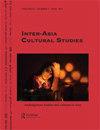Globalizing Thai amulets: the Chinese - Singaporean role in commoditizing objects of faith
IF 0.3
4区 社会学
Q4 ANTHROPOLOGY
引用次数: 0
Abstract
ABSTRACTThai amulets have gained increasing popularity among Chinese believers throughout Asia and beyond. This study aims to explore the social life of Thai amulets, their complex relationship with Chinese religiosity in the highly individualistic Singapore society, within the modern system of monetary transactions and new social media, and investigate how these embodied material networks affect their value and meaning. Based on ethnographic data, in-depth interviews and media analysis, this article highlights the agency of Chinese-Singaporean amulet dealers in the transnational amulet market. Taking advantage of global trust in the credibility of the “Singapore Brand” with their multilingual and marketing expertise, Chinese-Singaporean dealers have played a key role in commoditizing and selling Thai amulets to other Chinese believers throughout Asia and beyond. Moreover, the authors argue that a transnational sphere has enabled Chinese-Singaporean dealers to produce an “unofficial” sacred space that lies outside the state’s gaze in order to negotiate with a stressful life in Singapore.KEYWORDS: Chinese-Singaporeansfaith-commodityglobalizationThai amuletstransnational religious-networksBuddhist monkonline market AcknowledgmentsThis article is part of a PhD dissertation of the Asian Studies doctoral program, School of Liberal Arts, Walailak University. The Walailak University Human Research Ethics Committee approved this study, assigning it certificate number “WUEC-20-041-01.”Additional informationNotes on contributorsNattakarn NaepimaiNattakarn Naepimai is currently a lecturer at Suratthani Rajabhat University’s Bachelor of Education Program in Social Studies, Faculty of Education. He holds a B.A. in History from Thaksin University (2010), an M.A. in Southeast Asian Studies from Walailak University (2015) and is a Doctoral Candidate in Asian Studies from Walailak University. His research interests include anthropology of religion, ethnicity and Thai local history.Somrak ChaisingkananontSomrak Chaisingkananont is currently a lecturer at Walailak University’s Doctoral Program in Liberal Arts, School of Liberal Arts. She holds an MA in Anthropology from Thammasat University and a PhD in Southeast Asian Studies from the National University of Singapore (NUS). Her research interests include consumer culture, empowerment of communities, geosocial and cultural dimensions, transnationalism, ethnicity, and cultural anthropology.全球化的泰国护身符:中国-新加坡在宗教物品商品化中的角色
摘要泰国护身符在亚洲及其他地区的华人信徒中越来越受欢迎。本研究旨在探讨泰国护身符的社会生活,在高度个人主义的新加坡社会中,在现代货币交易体系和新的社交媒体中,它们与中国宗教的复杂关系,并研究这些体现的物质网络如何影响它们的价值和意义。本文以民族志数据、深度访谈和媒体分析为基础,重点分析了新加坡华裔护身符经销商在跨国护身符市场中的代理作用。利用全球对“新加坡品牌”信誉的信任和他们的多语言和营销专业知识,新加坡华人经销商在将泰国护身符商品化和销售给亚洲及其他地区的其他华人信徒方面发挥了关键作用。此外,作者认为,跨国领域使新加坡华人商人能够在国家视线之外创造一个“非官方”的神圣空间,以便与新加坡紧张的生活进行谈判。关键词:中国-新加坡;信仰-商品全球化;泰国护身符;跨国宗教网络;佛教僧侣;网络市场Walailak大学人类研究伦理委员会批准了这项研究,并授予其证书编号“WUEC-20-041-01”。作者简介:natakarn Naepimai目前是苏拉塔尼拉贾哈特大学教育学院社会研究教育学士课程的讲师。他拥有他信大学历史学学士学位(2010年),瓦拉腊大学东南亚研究硕士学位(2015年),瓦拉腊大学亚洲研究博士研究生。他的研究兴趣包括宗教人类学、民族人类学和泰国地方历史。Somrak Chaisingkananont目前是瓦拉腊大学文科学院文科博士课程的讲师。她拥有法政大学人类学硕士学位和新加坡国立大学东南亚研究博士学位。她的研究兴趣包括消费文化、社区赋权、地理社会和文化维度、跨国主义、种族和文化人类学。
本文章由计算机程序翻译,如有差异,请以英文原文为准。
求助全文
约1分钟内获得全文
求助全文
来源期刊

Inter-Asia Cultural Studies
Multiple-
CiteScore
0.90
自引率
20.00%
发文量
22
期刊介绍:
The cultural question is among the most important yet difficult subjects facing inter-Asia today. Throughout the 20th century, worldwide competition over capital, colonial history, and the Cold War has jeopardized interactions among cultures. Globalization of technology, regionalization of economy and the end of the Cold War have opened up a unique opportunity for cultural exchanges to take place. In response to global cultural changes, cultural studies has emerged internationally as an energetic field of scholarship. Inter-Asia Cultural Studies gives a long overdue voice, throughout the global intellectual community, to those concerned with inter-Asia processes.
 求助内容:
求助内容: 应助结果提醒方式:
应助结果提醒方式:


